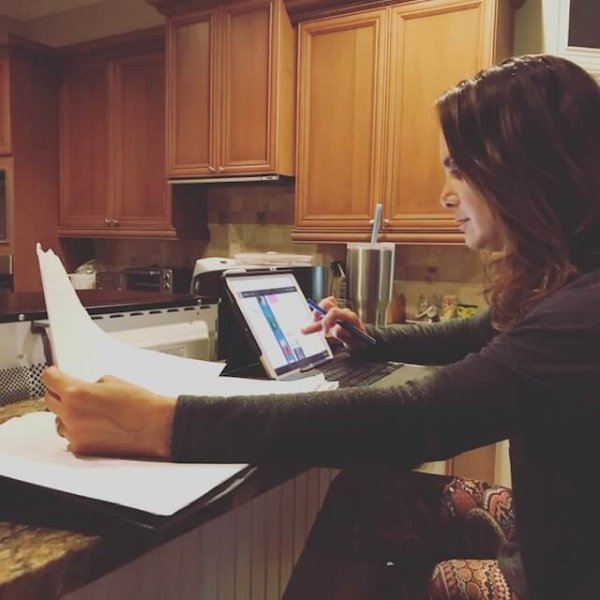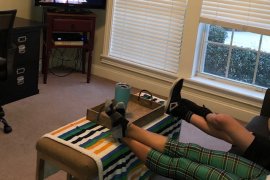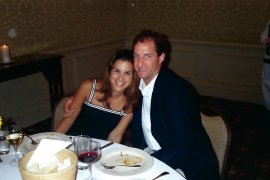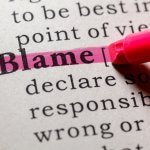
A little over a year ago, a professor at a prestigious nursing school reached out to me via my website asking if I’d be interested in writing the infertility chapter in a women’s health nursing textbook. I was flattered and realized it would be an amazing opportunity.
I was also a little nervous.
I weighed the risks and benefits. Writing a chapter in a textbook would be an amazing accomplishment, ensuring that I am up to date with my knowledge of reproductive endocrinology and infertility (REI) while also lending credibility to me as an ‘expert’ in my field. Also, the timing was good. I recently broke my foot and was frustrated that I was unable to run or exercise, so tackling a project like this would be a good distraction.
It would be a big undertaking, though. I’d written articles for journals, blogs, and websites, but the last time I contributed to a book was when I wrote a chapter of questions for a study guide. I was hesitant to re-enter the academic arena, as I became disenchanted with writing for academic publications after enduring an arduous editing process for an article that I wrote on polycystic ovarian syndrome (PCOS).
Did I want to write a whole chapter?
After making a pro-con list and receiving advice from a few trusted friends, I ultimately went with my gut and emailed the editor accepting the assignment.
I met my deadlines and was even ahead of schedule to send in my first draft, but as I prepared to email it, I had a mini panic attack: What if any of my content is out of date? What if someone used my information and the resulting patient care was subpar? Who did I think I was, writing a chapter that was going to be used in prestigious nursing schools?

I spun into a full-blown shame spiral. This wasn’t the first time I felt like I didn’t earn my spot, or that I was a fraud, a phenomenon that I knew well and later realized was called ‘Imposter Syndrome’.
My first recollection of it was when I was a teenager. I started piano lessons when I was 6, and every year there was a recital. Each student would climb up on a big stage and play his/her memorized piece to the large group of friends and family members assembled there. The recital, like many performances, started with basic pieces and ended with more complex, challenging ones. The message was that the last few performances were worth waiting for. At 16 years old (after 10 years of lessons) I made it to the next-to-last-spot for the recital that year (the ‘closer’ was a 12-year-old prodigy who, I reassured myself, was probably not as well-rounded as me).
When my name was announced, I, in all of my adolescent awkwardness, took my spot at the piano, sweating in an uncomfortable dress and hobbling on high heels that my mom forced me to wear, and sat on the bench. I placed my hands over the keys and my feet over the pedals, took a deep breath and…froze. Froze like in a comedy movie or a nightmare. My thinking brain sounded the alarm: What the hell was I doing? I didn’t belong there! I had been faking it all along! Wait until everyone realizes that I really can’t play.
Somehow, through sheer force of will, I finished, but that moment of panic and self-doubt led to the end of my music lessons and performances. In fact, I didn’t play the piano again until I was well into my 40’s.
The day that the first draft was due brought me back to that stage, and the accomplished adult that I now was regressed to that awkward adolescent girl in the starchy dress and ill-fitting pumps with performance anxiety.
Who did I think I was?
Was my work worth waiting for? How could I allow myself to be vulnerable like this?
Vulnerability as a positive quality is getting a lot of well-deserved traction in the media and academic circles, largely due to the work of Dr. Brene Brown who described it as ‘… not winning or losing; It’s having the courage to show up and be seen when we have no control over the outcome. Vulnerability is not weakness, it’s our greatest measure of courage’. I personally feel so strongly about the value of vulnerability as a clinical provider that I discuss it in almost all my learning modules and presentations.
I now had an important decision to make: Will I have the courage to practice what I preach?
I heard once that being brave is not accomplished solely in the form grand gestures or sentinel events. It is grown and cultivated in small moments like this, and something in me changed that day. I decided, at that moment, that I was no longer going to be ruled by shame nor defined by my imperfections. I resolved, at that moment, to allow myself to be vulnerable and put my work out there, even if it gets criticized. I came to the conclusion that striving to be perfect no longer serves me.
With this in mind, I hit ‘send’.

Ultimately, the book was published, and a copy was sent to me. I’d be lying if I didn’t admit that I was a little giddy receiving it and seeing my name in print. Although I can’t count the number of hours I spent writing and revising it, I don’t regret the time spent. I crafted and molded it until it had the right tone. I researched the shit out of it until I was confident that even if I missed something, I did the best that I could. It became something of which I was proud, and I felt justified being the person who was meant to write it.
‘It is impossible to have lived without failing at something, unless you live so cautiously that you might as well have not lived at all-In which case you fail by default.’
J.K. Rowling
I realize that, like the textbook, our lives have chapters. I am done with the one where I doubt myself and my abilities.
Maybe the accomplishment, in this case, is not in writing a chapter, but in closing one.









One Comment